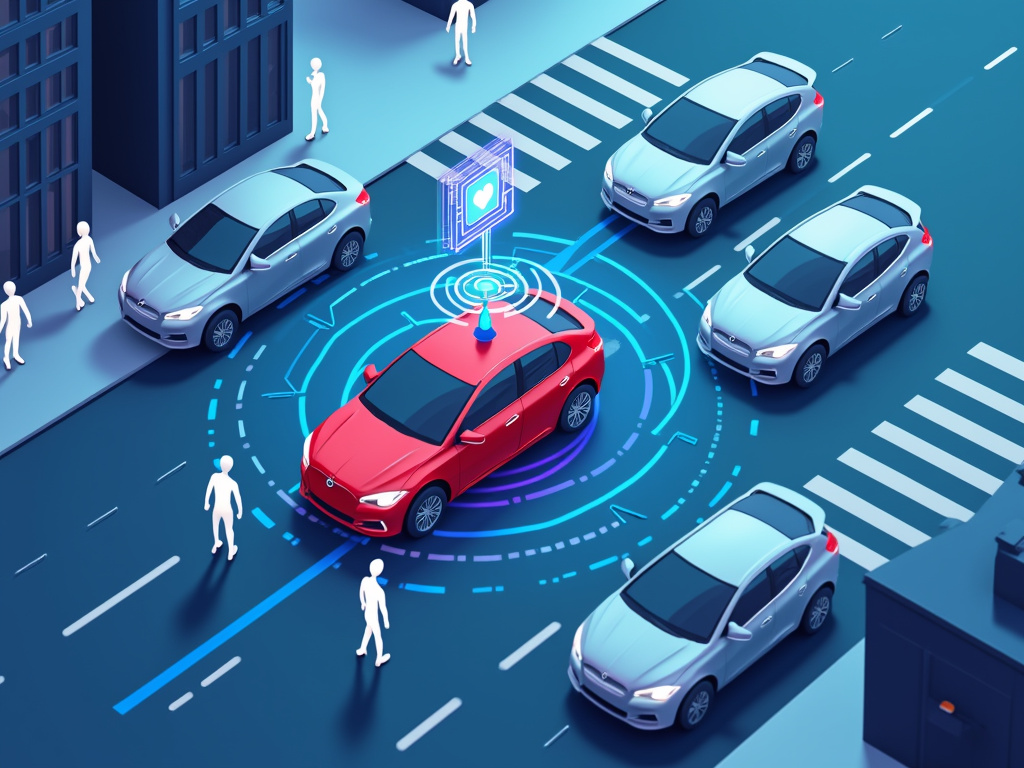Imagine a world where machines can think, learn, and make choices just like humans. That’s the power of AI agent decision-making. These smart computer programs are changing the game in how we tackle complex tasks and solve tricky problems across many industries. By using cool tech like machine learning and reinforcement learning, AI agents can work on their own, adapt to new situations, and even get better over time.
In this article, we’ll dive into the fascinating world of AI agents and explore how they make decisions. We’ll look at the different types of AI agents, see how they’re being used in real life, and uncover the big benefits they bring to businesses. Plus, we’ll show you how platforms like SmythOS are making it easier than ever to create and use these digital helpers.
So buckle up and get ready to discover how AI agents are shaping our future, one smart decision at a time!
Core Concepts of AI Agent Decision-Making
AI agents are smart computer programs that can think and act on their own. They work by looking at the world around them, thinking about what they see, and then taking action to reach certain goals. Let’s explore the key ideas that make AI agents so powerful.
First, AI agents have autonomy. This means they can make choices without a human telling them what to do every step of the way. For example, a self-driving car can decide when to turn or stop on its own.
Next, AI agents use perception to understand their surroundings. They might use cameras to see or microphones to hear, just like humans do. This helps them gather information about the world.
Once they have this information, AI agents use reasoning to figure out what to do. They look at the data they’ve collected and use complex math to make smart choices. It’s like how you might think about the best way to solve a puzzle.
One of the coolest things about AI agents is that they can learn. As they do more tasks, they get better at them. This is called machine learning. It’s like how you get better at a video game the more you play it.
AI agents are really good at tasks that need quick thinking. They can make decisions in real-time, which means they respond right away to changes around them. This makes them great for things like managing traffic lights or playing fast-paced games.
AI agents are not just smart – they’re like digital brains that can see, think, and act all on their own!
By understanding these core ideas, scientists and engineers can build AI agents that are even smarter and more helpful. As AI keeps getting better, we might see these agents doing all sorts of amazing things to make our lives easier and safer.
Types of AI Agents
Artificial Intelligence (AI) agents come in various forms, each designed to tackle specific challenges and operate in different environments. Let’s explore the main types of AI agents and their unique characteristics:
Simple Reflex Agents
These agents operate on a straightforward principle: they respond to the current situation based on predefined rules, without considering past experiences. Imagine a thermostat that turns on the heating when the temperature drops below a certain point. It’s simple, effective, but limited in its ability to adapt.
Model-Based Reflex Agents
Taking a step up in complexity, these agents maintain an internal model of their environment. This allows them to make more informed decisions by considering aspects of the world they can’t directly observe. A self-driving car uses this approach, combining sensor data with its internal map to navigate safely.
Goal-Based Agents
These agents are driven by specific objectives. They plan their actions to achieve predefined goals, constantly evaluating which moves will bring them closer to their target. A chess-playing AI is a prime example, always strategizing to checkmate the opponent.
Utility-Based Agents
Going beyond simple goals, utility-based agents assess the desirability of different outcomes. They aim to maximize overall satisfaction or ‘utility’. Think of a stock trading algorithm that balances risk and reward to optimize portfolio performance.
Learning Agents
Perhaps the most fascinating of all, learning agents have the ability to improve over time. They adapt to new situations by learning from their experiences, much like humans do. A recommendation system that refines its suggestions based on user feedback exemplifies this type of agent.
“The true sign of intelligence is not knowledge but imagination.” – Albert Einstein
This quote reminds us that the most advanced AI agents aren’t just repositories of information, but systems capable of creative problem-solving.
Each type of AI agent has its strengths and ideal applications. As technology advances, we’re seeing increasingly sophisticated agents that combine elements from multiple categories, pushing the boundaries of what’s possible in artificial intelligence.
As we continue to develop and refine these AI agents, we’re not just creating more efficient tools; we’re shaping the future of human-machine interaction and problem-solving capabilities. The potential applications are vast, from enhancing everyday convenience to tackling complex global challenges.
Applications of AI Agents

AI agents are changing many industries by doing complex tasks and helping make better decisions. Let’s look at how they are used in different areas:
Self-Driving Cars
AI agents help cars drive on their own. They can:
- See the road and other cars
- React to sudden changes
- Choose the best route
This makes driving safer and easier for everyone.
Healthcare
In hospitals and clinics, AI agents are very useful. They can:
- Help doctors spot diseases faster
- Suggest treatment plans
- Keep track of patient health
This means patients can get better care more quickly.
Finance
Banks and investment firms use AI agents too. These agents can:
- Buy and sell stocks quickly
- Spot unusual activity that might be fraud
- Help decide if loans are safe to give out
This helps keep money safer and make better financial choices.
Benefits of AI Agents
Using AI agents in these areas has big benefits:
- They work faster than humans
- They make fewer mistakes
- They can work all day and night
- They save money for companies
AI agents are like super-smart helpers that never get tired. They’re changing how we work, travel, and stay healthy!
As AI agents get smarter, they’ll help in even more ways. They’re making our world work better, one task at a time.
Advantages of Using AI Agents
AI agents are revolutionizing the way businesses operate, offering a wealth of benefits that boost efficiency and transform decision-making processes. These intelligent systems excel at handling repetitive tasks, freeing up human workers to focus on more complex and creative endeavors. For instance, in customer service, AI agents can field common inquiries 24/7, allowing human representatives to tackle nuanced issues that require empathy and problem-solving skills.
One of the most striking advantages of AI agents is their ability to process massive datasets at lightning speed. This capability enables real-time decision-making crucial in fast-paced environments like financial trading or supply chain management. Imagine an AI agent analyzing market trends and executing trades in milliseconds, potentially giving a company a significant edge over competitors relying on slower, human-driven processes.
Perhaps most impressively, AI agents possess the capacity to learn and adapt continuously. Unlike traditional software that remains static, these systems refine their performance over time, becoming increasingly accurate and reliable. This self-improvement aspect means that an AI agent deployed in a manufacturing setting might start by simply monitoring production lines but could evolve to predict maintenance needs or suggest process optimizations, all without explicit reprogramming.
The financial implications of implementing AI agents are also compelling. While the initial investment may be substantial, the long-term cost savings can be enormous. By reducing the need for human labor in routine tasks and improving overall process efficiency, businesses can significantly cut operational expenses. A recent study by McKinsey reported that AI could potentially deliver additional economic output of around $13 trillion by 2030, highlighting the transformative economic potential of these technologies.
As we look to the future, the advantages of AI agents in the workplace are clear. From enhancing operational efficiency to enabling split-second decisions based on complex data analysis, these intelligent systems are not just tools but partners in driving business success. As organizations continue to integrate AI agents into their operations, we can expect to see even more innovative applications that push the boundaries of what’s possible in productivity and decision-making.
Conclusion: Leveraging SmythOS for AI Agents
AI agents are reshaping how businesses tackle complex tasks and make decisions. These digital helpers streamline operations across various industries, from customer service to data analysis. By leveraging SmythOS, companies aren’t just keeping pace with AI advancements—they’re positioning themselves at the forefront of innovation.
SmythOS stands out as a powerful ally in this AI revolution, offering tools that make creating and managing AI agents simpler and more efficient. With SmythOS, developers can build AI agents much faster—up to 99% quicker than traditional methods. This speed boost doesn’t come at the cost of quality; the platform’s visual debugging tools ensure that AI agents perform reliably, catching issues before they impact real-world operations.
Perhaps most importantly, SmythOS adapts to your needs. Whether you want to deploy your AI agent as a chatbot, an API, or even schedule it for specific tasks, SmythOS provides the flexibility to make it happen. This versatility means businesses can integrate AI seamlessly into their existing workflows. The platform’s user-friendly approach opens doors for teams to experiment, iterate, and deploy AI solutions that address their unique challenges.
As we look to the future, it’s clear that AI agents will play an increasingly vital role in business success. Tools like SmythOS are making this future accessible to more organizations, regardless of their technical expertise. By simplifying development and ensuring robust performance, SmythOS empowers businesses to harness the full potential of AI agents, driving efficiency and unlocking new possibilities.
